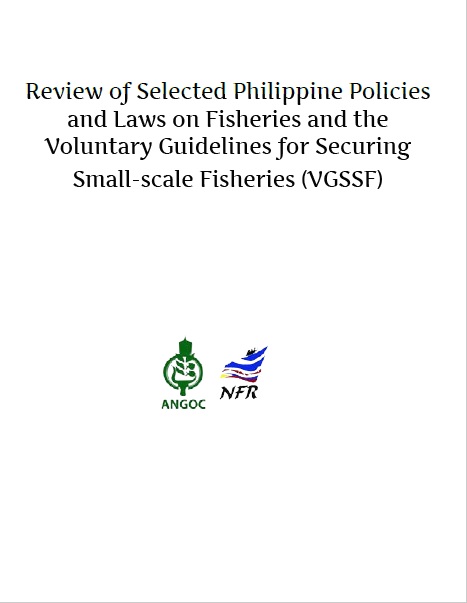
Philippine Policies and Laws on Fisheries Portal Asian NGO Coalition
Around 1.8 million municipal fishers in the Philippines contribute to more than 26 percent of the country’s total fish production. However, fisherfolk remain among the poorest of the poor, with 39.2 percent of fishers living below the poverty line. In this regard, The Voluntary Guidelines for Securing Sustainable Small-Scale Fisheries in the Context of Food Security and Poverty Eradication (VGSSF) may provide guidance to national and local government offices through its rights-based recognition of the important role of small-scale fisheries in meeting the nutritional and socioeconomic needs of Filipinos.
This Review of Selected Philippine Policies and Laws on Fisheries and the Voluntary Guidelines for Securing Sustainable Small-Scale Fisheries (VGSSF) analyzes the VGSSF’s provisions vis-à-vis major policies, laws, and mechanisms related to the governance of the fishery sector in the Philippines. It identifies areas of convergence and divergence to serve as a springboard for advocacy and for the mainstreaming of the VGSSF in the country. To contextualize the issues presented, this paper also incorporates the key findings from two cases: i) overlapping or conflicting laws on the management of ancestral waters and municipal waters in Coron, Palawan; and, ii) overlapping policies and mandates of agencies governing the management of coastal waters in Infanta and Polilio Group of Islands, Quezon.
This publication was prepared by NFR for the project “Mainstreaming Voluntary Guidelines on Governance of Tenure (VGGT): Philippines,” implemented by ANGOC and supported by the Food and Agriculture Organization (FAO) of the United Nations.
The views and information provided in this document do not necessarily reflect the views and policies of FAO.
